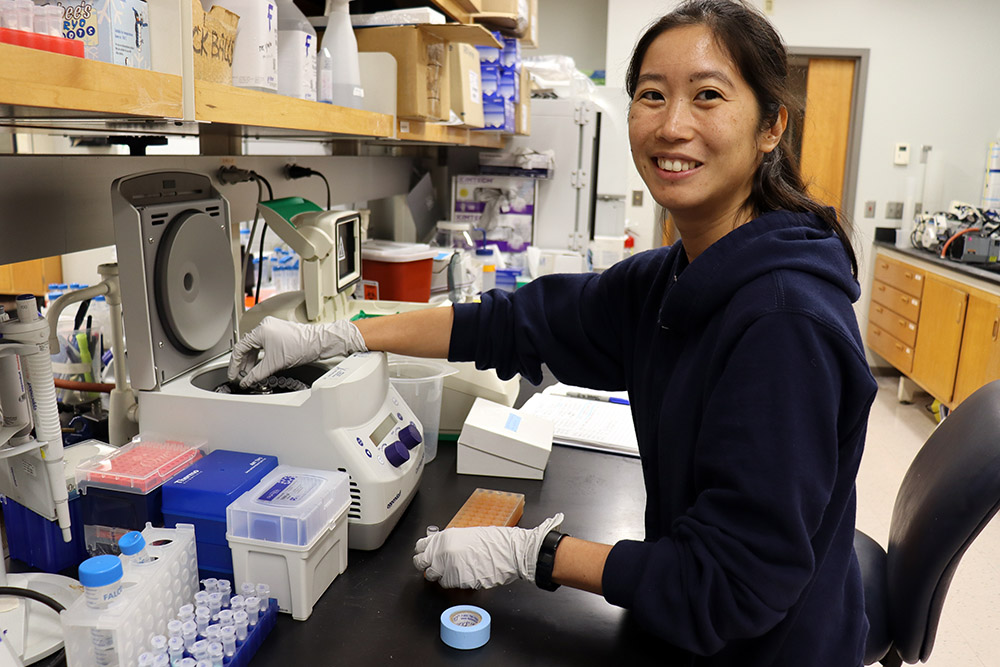Project Activities
Laboratory Analyses

Macronutrient and trace metal samples collected during shipboard surveys are processed in the laboratory. These results will constrain the distribution of trace metals and nutrients in surface waters of the West Florida Shelf, and inform integration of these micro- and macronutrients in predictive models. We will also measure trace metals and macronutrients in laboratory-based culture studies, which will help determine trace metal quotas.
Viral discovery involves collecting field samples during K. brevis blooms. K. brevis cells are concentrated from the water using filtration, then homogenized to release virus particles. Virus particles are purified, nucleic acids (DNA and RNA) are purified, and viromes (all the viruses present in the sample) are analyzed by next-generation sequencing. Sequences with similarity to known phytoplankton viruses are identified through bioinformatic analyses, and specific assays are being designed to detect and quantify the viruses in bloom and non-bloom samples. Subsequent efforts will attempt to infect K. brevis cultures with purified virus particles to demonstrate infectivity under controlled laboratory settings.
These efforts are critical for advancing our understanding of mechanisms underlying key bloom processes, including initiation, growth, and termination.
This research is made possible with funding support from the Florida Fish and Wildlife Conservation Commission (FWC Agreement No. 20035) in partnership with Mote Marine Laboratory.


